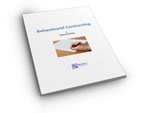 2012 saw the 10th anniversary of the Association for Coaching, not just a celebration of the Association, but a celebration for coaching over the last decade.
2012 saw the 10th anniversary of the Association for Coaching, not just a celebration of the Association, but a celebration for coaching over the last decade.
Coaching has changed considerably since it first started to emerge commercially in the 1970’s. Back then, most people had known coaching only in a sports context, but gradually the concept started to filter into other areas of life, most notably when Timothy Gallwey, creator of the ‘Inner Game of Tennis’, became well-known for his approach towards the sporting mindset. Throughout that decade, popularised by television, the Inner Game filtered into the boardrooms of many well-known organisations in the context of corporate change, culture and mindset.
Towards the late 80’s and early 90’s, Coaching was gaining prominence in the UK, particularly around the introduction of the GROW coaching model, most often associated with Sir John Whitmore who had previously worked with Gallwey in the United States. The GROW model, typically used for goal setting and problem solving is still used today as a fundamental tool in coaching practice. As coaching grew it took from a range of approaches including Psychological, Management and Learning and Development theories just to mention a few.
In addition to the growth of executive and corporate coaching in the 90’s, life coaching was also gaining a strong-hold in the UK. Individuals turned to personal experts to help make important life decisions, change career, increase confidence or deal with life’s challenges. By the early nineties, coaching had become mainstream, yet it was clear that many people were jumping on the coaching bandwagon with little formal training or qualifications. This led to concerns about quality, particularly around life coaching where the boundaries between coaching and therapy could sometimes become blurred.
It was in 2002 that the Association for Coaching (AC) was formed, with the primary aim to address this negative perception and raise standards and professionalism within coaching. The first UK coaching accreditation programme was set up by the AC in 2005 and it was the first UK organisation to look at developing an industry specific code of ethics and complaints procedure. Today, there is a whole series of regional professional development events and workshops and the AC continues to look at innovative ways to support coaches in their professional development and practice, including coaching supervision, co-coaching forums, online discussion forums, networking events, books and publications. These initiatives have been developed through a highly committed and dynamic team of coaching volunteers, all of which have the aim of raising standards in mind.
In 2012, the coaching profession is accepted as an essential discipline available to senior leaders in many organisations. According to the Institute of Leadership and Management (ILM), 85% of organisations offer coaching at senior level with 52% of organisations offering coaching to other employees. Clearly, there is still capacity in the market for coaching at all levels within an organisation and, with the benefits of coaching being recognised within senior leadership, the Association for Coaching predicts that the market will continue to grow over the next decade, with many organisations looking to further develop their in-house coaching programmes.
Coaching has also become recognised within the medical profession as an effective preventative approach to mental health, a supportive role for coaching which does not aim to replace therapy, but can help individuals address some of the personal issues and behaviour that can affect their long-term mental health.
The Association for Coaching believes that the link between behavioural and organisational psychology will continue to be recognised and that coaches will need to increase their knowledge in areas such as individual psychology and organisational understanding, if they are to continue along the path of high standards and professionalism. That is why, in the year of the AC’s 10th Anniversary, its annual conference, called ‘From Inner Game to Neuroscience’, is focused on the past and future of coaching. Keynote speaker Frank Dick, a former Sports Coach and now a leading Executive Coach reflects the sporting origins of coaching, whereas a number of other keynote speakers will focus on the psychological aspect of coaching including positive psychology, emotional intelligence, neuroscience, mindfulness and cognitive behavioural coaching. All of which indicate how far coaching has come in terms of its professionalism and impact on human psychology and behaviour.
This article first appeared in HRmagazine.co.uk on 12 June 2012






